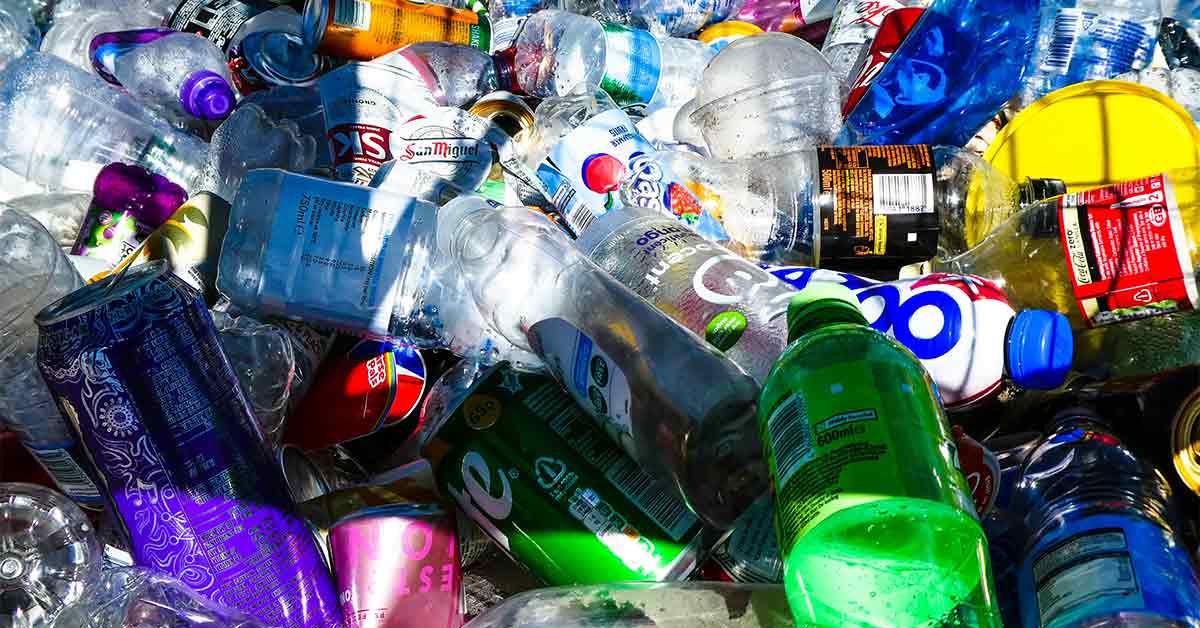For many Muslims breaking fast in mosques around the world this Ramadan, something will be missing: plastics.
The communal experience of iftars — the after-sunset meal that brings people of the faith together during the holy month — often necessitates the use of utensils designed for mass events, such as plastic knives and forks, along with bottles of water.
But to encourage Muslims to be more mindful of the impact of Ramadan on the environment, mosques are increasingly dispensing of single-use items, with some banning the use of plastics altogether.
As a historian of Islam, I see this “greening” of Ramadan as entirely in keeping with the traditions of the faith, and in particular the observance of Ramadan.
The month — during which observant Muslims must abstain from even a sip of water or food from sun up to sun down — is a time for members of the faith to focus on purifying themselves as individuals against excess and materialism.
But in recent years, Muslim communities around the world have used the period to rally around themes of social awareness. And this includes understanding the perils of wastefulness and embracing the link between Ramadan and environmental consciousness.
The ban on plastics — a move encouraged by the Muslim Council of Britain as a way for Muslims “to be mindful of [God’s] creation and care for the environment” — is just one example.
Many other mosques and centers are discouraging large or extravagant evening meals altogether. The fear is such communal events generate food waste and overconsumption and often rely on non-biodegradable materials for cutlery, plates and serving platters.
Quranic environmentalism
While the move toward environmental consciousness has gained traction in Muslim communities in recent years, the links between Islam and sustainability can be found in the faith’s foundational texts.
Scholars have long emphasized principles outlined in the Quran that highlight conservation, reverence for living creatures and the diversity of living things as a reminder of God’s creation.
The Quran repeatedly emphasizes the idea of “mizan,” a kind of cosmic and natural balance, and the role of humans as stewards and khalifa, or “viceregents,” on Earth — terms that also carry an environmental interpretation.
Recently, Islamic environmental activists have highlighted the numerous hadith — sayings of the Prophet Muhammad that provide guidance to followers of the faith — that emphasize that Muslims should avoid excess, respect resources and living things, and consume in moderation.

Although present from the outset of the faith, Islam’s ties to environmentalism received major visibility with the works of Iranian philosopher Seyyed Hossein Nasr, and a series of lectures he delivered at the University of Chicago in 1966.
The lectures and a subsequent book, “Man and Nature: The Spiritual Crisis in Modern Man,” warned that humans had broken their relationship with nature and thus placed themselves in grave ecological danger.
Nasr blamed modern and Western science for being materialistic, utilitarian and inhuman, claiming it had destroyed traditional views of nature. Nasr argued that Islamic philosophy, metaphysics, scientific tradition, arts and literature emphasize the spiritual significance of nature.
But he noted that numerous contemporary factors, such as mass rural-to-urban migration and poor and autocratic leadership, had prevented the Muslim world from realizing and implementing the Islamic view of the natural environment.
Scholars and activists expanded on Nasr’s work through the 1980s and 1990s, among them Fazlun Khalid, one of the world’s leading voices on Islam and environmentalism.
In 1994, Khalid founded the Islamic Foundation for Ecology and Environmental Sciences, an organization dedicated to the maintenance of the planet as a healthy habitat for all living beings.
halid and other Muslim environmentalists suggest that Islam’s nearly 2 billion adherents can participate in the tasks of environmental sustainability and equity not through Western models and ideologies but from within their own traditions.
Partnering with the United Nations Environment Program, Khalid and other leading scholars crafted Al-Mizan, a worldwide project for Muslim leaders interested in Muslims’ religious commitments to nature.
“The ethos of Islam is that it integrates belief with a code of conduct which pays heed to the essence of the natural world,” Khalid wrote in “Signs on the Earth: Islam, Modernity, and the Climate Crisis.”
Going beyond an eco-Ramadan
Environmental crises disproportionately affect the world’s poorest populations, and academics have highlighted the particular vulnerabilities of Muslim communities around the world, such as the victims of devastating floods in Pakistan in 2022.
By highlighting Islamic principles, policies and community approaches, academics have shown how Islam can represent a model for environmental stewardship.
This push for environmental consciousness extends beyond Ramadan. In recent years, Muslims have tried to introduce green practices into the shrine cities in Iraq during pilgrimage seasons in Ashura and Arbaeen.
This has included awareness campaigns encouraging the 20 million pilgrims who visit Arbaeen annually to reduce the tons of trash they leave every year that clog up Iraq’s waterways.
Quoting from Shiite scholarship and drawing on testimonials from community leaders, the Green Pilgrim movement suggests carrying cloth bags and reusable water bottles, turning down plastic cutlery, and hosting eco-friendly stalls along the walk.
Muslim-owned businesses and nonprofits are joining these wider efforts. Melanie Elturk, the founder of the successful hijab brand Haute Hijab, regularly ties together faith, fashion, commerce and environmentalism by highlighting the brand’s focus on sustainability and environmental impact.
The Washington, D.C., nonprofit Green Muslims pioneered the first “leftar” — a play on the word “iftar” — using leftovers and reusable containers.
These efforts are but a few of the diverse ways that Muslim communities are addressing environmental impact. The greening of Ramadan fits into a broader conversation about how often communities can tackle climate change within their own frameworks.
But Islamic environmentalism is more than just the dispensing of plastic forks and water bottles — it taps into a worldview ingrained in the faith from the outset, and can continue to guide adherents as they navigate environmentalism, a space where they may otherwise be marginalized.
This article by Noorzehra Zaidi, from the University of Maryland Baltimore County, was originally published by The Conversation.



